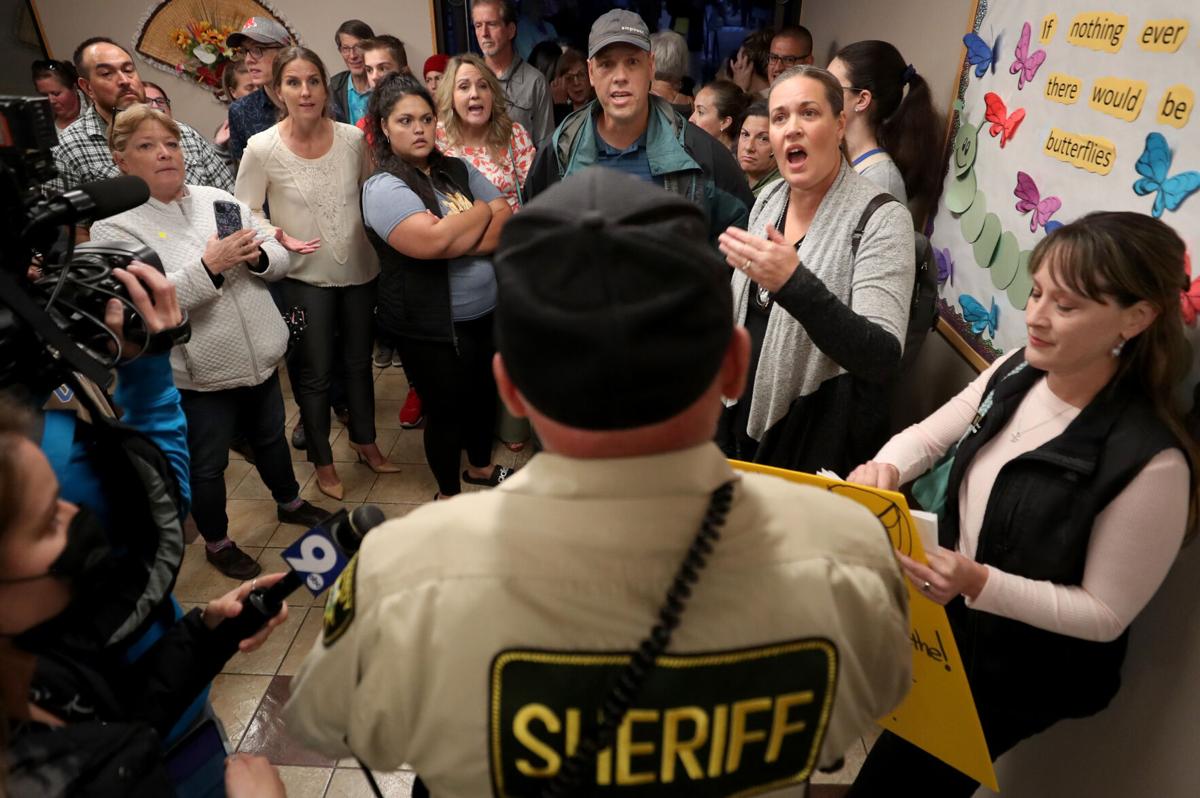PHOENIX — School boards, city councils and boards of supervisors that don’t provide enough seats for people expected at public meetings could end up facing fines under terms of legislation approved Wednesday by the House Committee on Government and Elections.
The proposal by Rep. John Kavanagh, R-Fountain Hills, comes as residents have crowded into school board meetings across the state — or at least tried to — amid debates over everything from masks to how children should be taught about matters of race and discrimination. What happens, he said, is that people find themselves left on the outside as the room chosen for the event is too small to let in everyone who is interested.
As crafted, HB 2070 says that public bodies must provide a “reasonable amount of seating” to accommodate the “anticipated attendance” of anyone seeking to be at the meeting.
The measure has teeth: The head of the public body who does not comply is subject to a civil penalty for violating the state’s Open Meeting Law.
That penalty is not specified for a first offense. But a second violation carries a $500 fine, and $2,500 for a third and subsequent offense.
And the measure says the fine has to be paid by the person who knowingly violates the law and cannot be paid by the government agency or board.
Kavanagh said that officials who run these meetings need to recognize when there are controversial issues that they are likely to bring out more people than normal run-of-the-mill business.
All that drew questions from House Minority Leader Reginald Bolding, D-Laveen, on how a public official seeking to avoid a fine would know how many people to expect.
“How would they estimate whether or not they should have a large room, a small room?” he asked.
Kavanagh said it’s a matter of what’s reasonable.
“They would look at the totality of the situation,” Kavanagh said.
For example, Kavanagh said a town council might be talking about a major rezoning, opening an area up for something like apartment buildings. He said officials can look at the level of public interest by looking at the news coverage and even the letters to the editor.
“I mean, people can get a feel for it,” Kavanagh said.
Ditto, he said, when a school district is going to be discussing “a real hot-button issue.”
So if a school board is anticipating public interest, they should move a meeting to a larger space, like an auditorium.
Rep. Jake Hoffman, R-Queen Creek, said he can attest to this being a real issue. He told of a meeting in the Higley Unified School District during a debate last year about mask mandates where the crowd exceeded the capacity of the room where it was held.
In this case, he said, seating capacity was reduced by 80% of what would normally be allowed.
“And they refused to allow anybody in,” Hoffman said.
Hoffman, who had previously served on the board, said he was allowed in “as a matter of courtesy as a sitting state representative that is over their district.”
Kavanagh did agree to add language to HB 2070 that makes the requirement for sufficient seating contingent on whether it is “feasible.”
What that means, he said, is that a small fire district that normally meets in a small room would not be required to rent a hall just because a crowd was expected. But he said there is no excuse for a school board with access to an auditorium to refuse to move a meeting.
The same is true, he said, for city councils and county supervisors, saying they would be required to make use of larger facilities that are available.
Kavanagh rejected a suggestion by Rep. Lorenzo Sierra, D-Avondale, to allow governing boards, anticipating a large crowd, to instead provide virtual access through things like a Zoom feed.
“I wouldn’t mandate virtual if they can provide a room big enough,” he said. Kavanagh said he wants to stick to the original intent of his bill to require meetings to be moved “if they reasonably anticipate a bigger crowd, and if it’s feasible for them to get a bigger room.”
Wednesday’s vote comes a day after the Senate Government Committee rejected a related proposal which would have prohibited school governing boards from precluding people from demonstrating on school property outside of where a meeting is taking place.
Sen. Michelle Ugenti-Rita, R-Scottsdale, complained that some boards relegate protesters to sites off the campus. She said that undermines the purpose of the event, which is to ensure that board members see those who are protesting and how many of them there are.
But the measure, SB 1010, failed on a tie vote amid concerns with another provision of the bill which would have scrapped the nonpartisan elections that now govern school boards and instead force candidates to identify their party affiliation.





